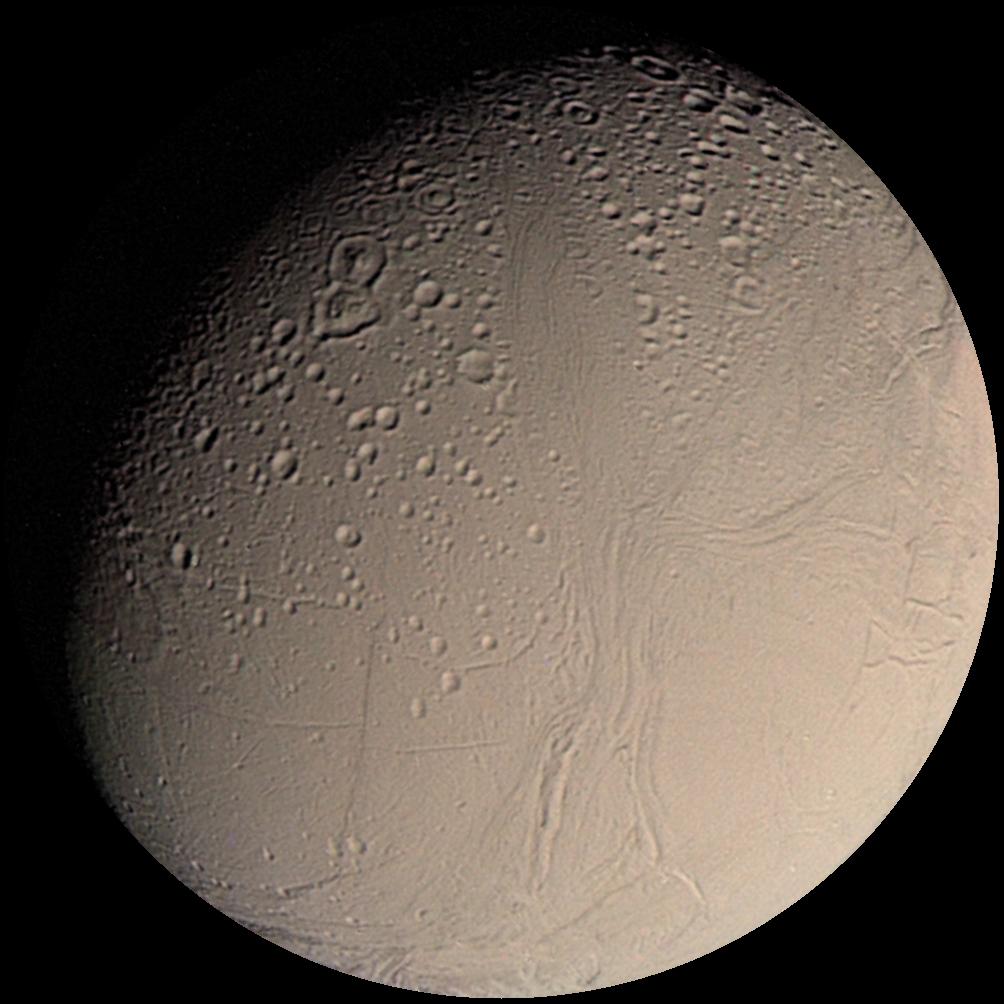“In my dreams it couldn’t go as perfectly as it went tonight, we went right down the middle.” Touchdown: NASA’s Phoenix Mars Lander, soon to look for water in the Martian Arctic, lands without incident in the Vastitas Borealis plains. Congrats!
Tag: The Solar System
Cosmic Data.
“Fact:…The density of Saturn is so low that if you were to put it in a giant glass of water it would float.” And another pilfered link, which I meant to post last week: Megg of Quiddity points the way to 10 Cool Facts about Space (although, to paraphrase The Smiths, some facts are cooler than others.)
Red Surf?
New photos released by NASA from the Mars Global Surveyor seem to suggest the possibility of surface water on Mars, which would make any attempt to visit — or colonize — the red planet considerably easier (although, obviously, it’s still no walk in the park.)
Pluto Put Down.
Sorry, Virginia (and all the other kids out there who just memorized the solar system): As the dust dies down at the recent astronomer’s conference, word comes to light that Pluto has in fact been demoted to “dwarf planet,” a status it’ll hold with UB313 (Xena) and Ceres.
Much Ado about Pluto.
At a meeting of 2,500 astronomers in Prague to determine the appropriate definition of “planet” (in part due to the Xena challenge), it appears Pluto might soon be reclassified as a “dwarf planet” (as opposed to a “terrestrial planet” (Earth, Mars) or a “gas giant planet.” (Jupiter, Saturn)) rather than fully being demoted to non-planet status. Said one proponent of the plan: “I think we have done something that will make the Plutocrats and the children of the United States happy.“
Martian Melee.
“‘We certainly have not convinced the community, and that’s been a little bit disappointing,’ said David McKay, a NASA biochemist and leader of the team that started the scientific episode.” Ten years later, CNN summarizes the simmering scientific dispute over a Martian meteorite, and the possible (albeit now seemingly quite unlikely) signs of life within.
Burning like a Silver Flame.
The European Space Agency releases the first new pics from their recent “Express” mission to Venus. The Venus Express probe entered Venusian orbit on Tuesday.
Cartography of Mars.
“‘The idea is to look at Mars and not think of it as a mysterious alien place,’ Christensen said.” Along the lines of Google Moon, one can now journey to Google Mars.
Nothing Ever Happens on Mars.
“I think that this mission will re-write the science books on Mars.” More happy space news following the discovery of water on Enceladus: NASA successfully pilots the Mars Reconnaissance Orbiter into Martian orbit. “It was picture perfect. We could not have planned it any better.” (Phew…looks like everyone successfully converted to metric this time.)
Eye on Enceladus.
 “All these worlds are yours, except Europa…oh, and Enceladus.” In very big news, NASA announces that Cassini has found water plumes on Enceladus, Saturn’s moon. “This finding has substantially broadened the range of environments in the solar system that might support living organisms, and it doesn’t get any more significant than that…I’d say we’ve just hit the ball right out of the park.” What’s more, “unlike Europa, which researchers believe harbors a vast ocean beneath kilometers of thick ice, Enceladus’ water may be just below the surface.”
“All these worlds are yours, except Europa…oh, and Enceladus.” In very big news, NASA announces that Cassini has found water plumes on Enceladus, Saturn’s moon. “This finding has substantially broadened the range of environments in the solar system that might support living organisms, and it doesn’t get any more significant than that…I’d say we’ve just hit the ball right out of the park.” What’s more, “unlike Europa, which researchers believe harbors a vast ocean beneath kilometers of thick ice, Enceladus’ water may be just below the surface.”

